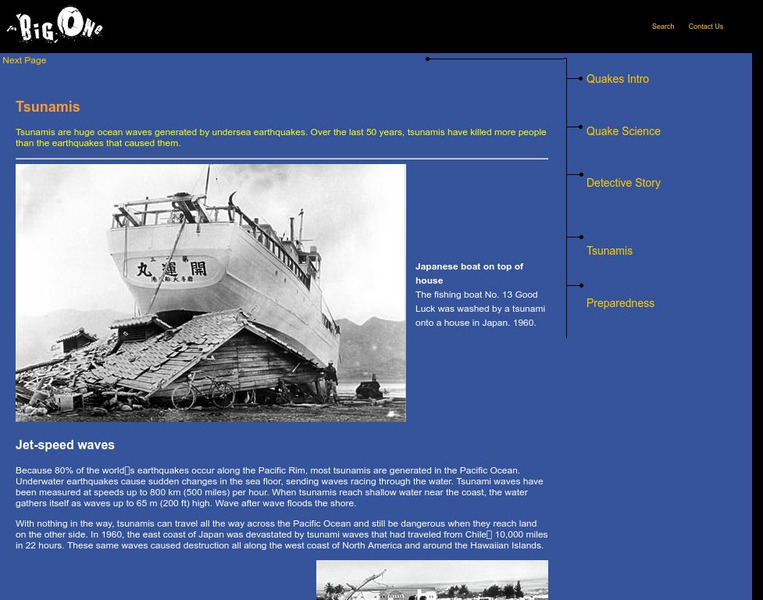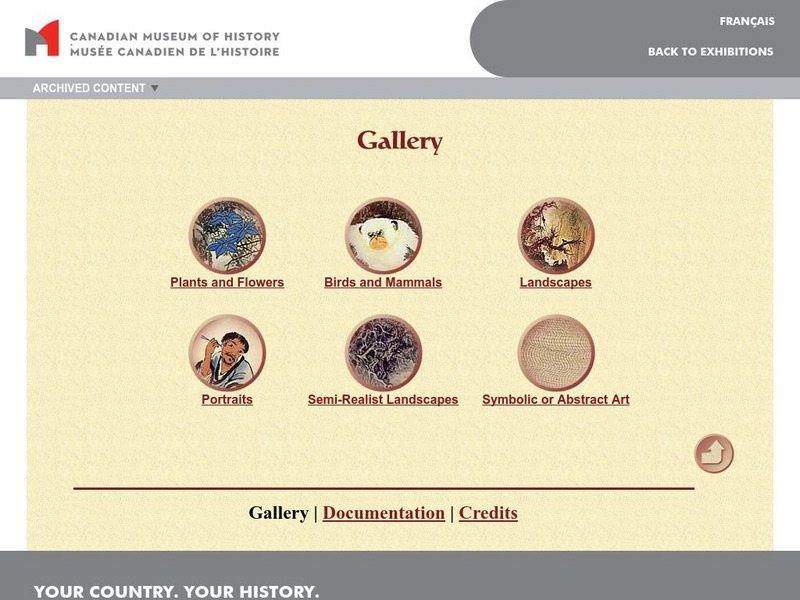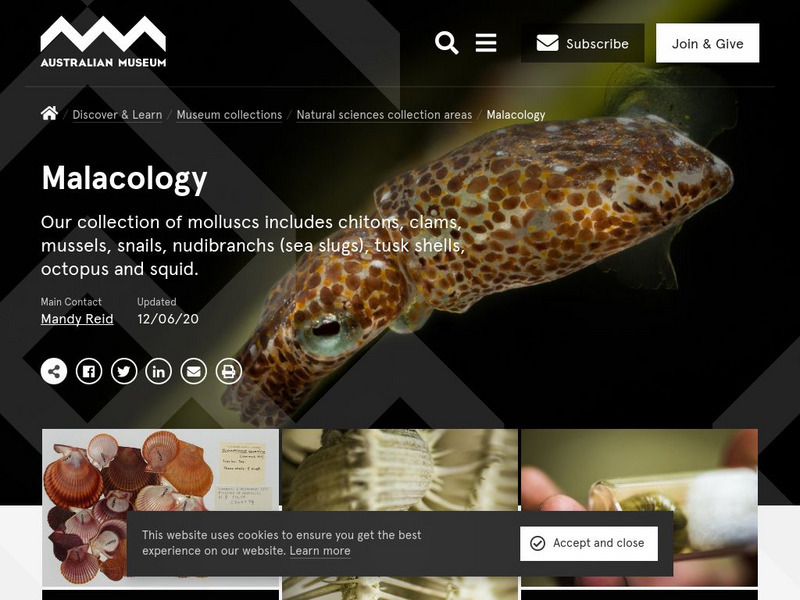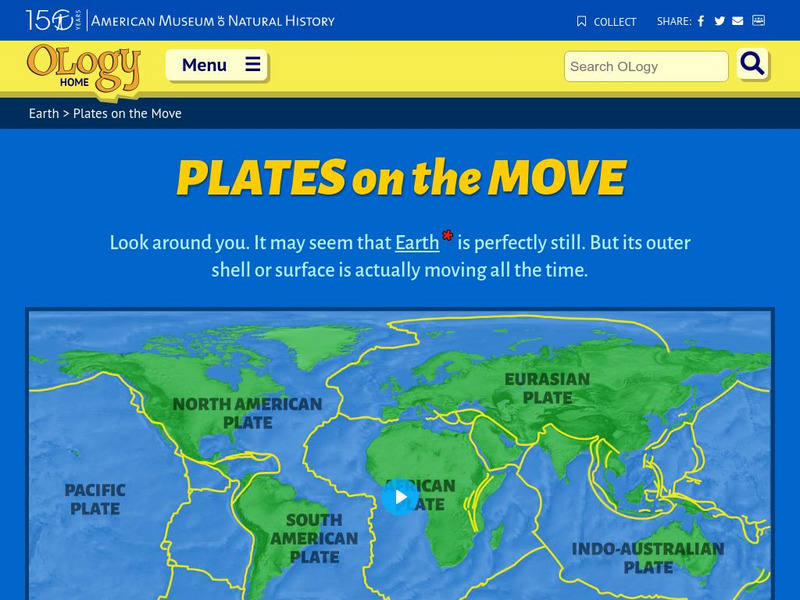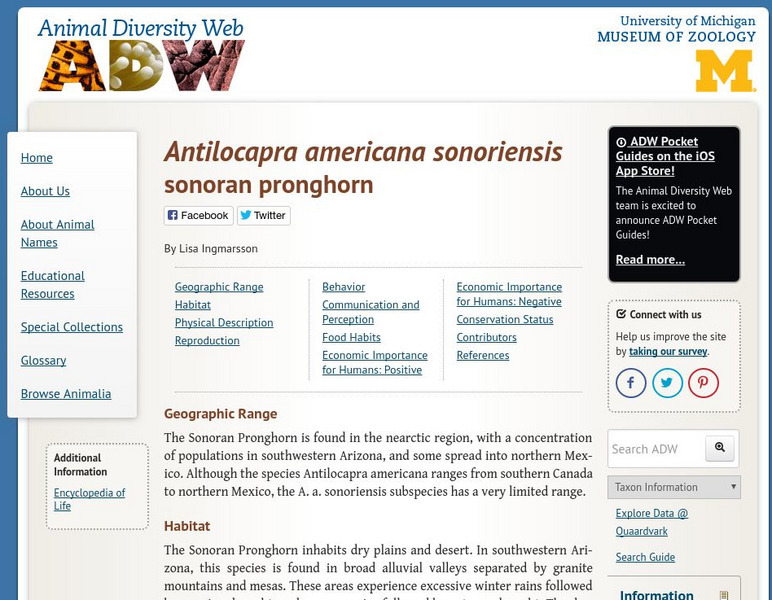Smithsonian Institution
National Museum of American History: Powering the Past: Emergence of Electrical Utilities in America
Looks at the history of electrical utilities in the United States from the time of Edison up to President Franklin Roosevelt.
Smithsonian Institution
National Museum of American History: Three Mile Island the Inside Story
This Web site was created to provide more information about the Three Mile Island nuclear power plant; about the course of the accident there; about the steps?extending over almost 15 years?through which the nature and extent of the...
Other
Denver Museum of Nature and Science: Follow a Fossil
Students examine paleontology, the study of ancient life on Earth. Some topics explored are vertebrates, invertebrates, and plants.
Other
The Museum of Un Natural Mystery: The Mystery of the Rosetta Stone
A nicely written history of the finding and the decoding of the Rosetta Stone.
Other
Canada Science and Technology Museum: Images of Canada; A Canadian History
This immense gallery of photos of Canada is divided into topics and accompanying text. Includes agriculture, aviation, people, natural resources, structures, and scenic views! An invaluable site for educators, students, and anyone who...
Burke Museum
Burke Museum: Tsunamis
The information on tsunamis provided at this site is part of the Burke Museum's online exhibition on earthquakes and geology. Prevention is discussed, along with famous tsunamis in history.
Canadian Museum of History
Canadian Museum of History: Gallery
This article is easy to navigate for students of all ages. Provides examples of Chinese artwork: plants and flowers, birds, mammals, landscapes, portraits, semi-realist landscapes, symbolic art, and abstract art.
Smithsonian Institution
National Museum of American History: Fishing for a Living: The Salmon Coast
This resource provides information about the Pacific Northwest and the cultures of people who inhabited the area.
Burke Museum
Burke Museum: Waterlines: Discover & Explore Seattle's Past Landscapes
Seattle is one of the most dramatically engineered cities in the USA. This rich interactive website enables people to see how Seattle's various landscapes have changed over time. The site starts out with an interactive map of the Puget...
Other
Pella Museum: Paleontology and Geology of Jordan
This English language site focuses on the paleontology, geology, and the fossilized flora, and fauna Jordan. Scientific articles are interspersed with extensive photographs and descriptions of various features.
University of Florida
Flmnh: Gallery of Southeastern u.s. Birds
These Florida Museum of Natural History bird photos may be used for reports and projects. Recordings of bird calls are also available.
Smithsonian Institution
National Museum of Natural History: Red Cloud: Photographs of an Oglala Sioux Chief
A great slideshow of pictures of Red Cloud and his Uncle's Shirt courtesy of Smithsonian Institution.
University of California
University of California Museum of Paleontology: Understanding Evolution
This resource presents extensive information for learning about and teaching evolution including an in depth course "Evolution 101", teaching materials, and a resource library.
Canadian Museum of Nature
Canadian Museum of Nature: Coelacanths
The Canadian Museum of Nature provides some succinct details of the characteristics and history of Coelacanths.
Penn Museum
Penn Museum: Ancient Greek World Men's Life: History of Warfare
This resource summarizes the history and nature of ancient Greek warfare and the role it played in the average man's life. It includes further links about chariots, weapons, and armor.
Australian Museum
Australian Museum: Malacology
See the Australian Museum Online collection of mollusca. Read about how the sea slug defends itself and the history of the bivalve pulvinitidae.
Read Works
Read Works: The Ancient City of Petra: Controlling Trade Routes
[Free Registration/Login Required] This ReadWorks passage from the American Museum of Natural Anthropology's website called OLogy provides a brief history of the city of Petra and its importance to ancient trade routes. A paired passage,...
University of Oregon
Museum of Natural and Cultural History: Rocks and Minerals: Everyday Uses
Click on the shelves in this virtual exhibition to learn about the many rocks and minerals that we use in our everyday lives.
American Museum of Natural History
American Museum of Natural History: O Logy: Plates on the Move
Find an interrelated set of tools--maps, animations, diagrams, photographs, and text--to help you understand tectonic plates and how they move.
University of Florida
Florida Museum of Natural History: Identify a Florida Snake
This field guide to the snakes of Florida has everything you need to identify one, including drawings of scale patterns and excellent photographs, as well as how to recognize which ones are venomous. Also included is a section on how to...
Idaho State University
Idaho Museum of Natural History: Guide to the Plants of Idaho State Arboretum
This resource describes the different plants of the Idaho State Arboretum in Pocatello. Users are provided with a picture and a description of every plant in the arboretum. You can click on the pictures for a larger view.
Smithsonian Institution
National Museum of Natural History: The Origin of the Genus Homo
The evolution of the Genus Homo is neatly laid out in a chronological fashion beginning with the key change that signaled the origin of Homo, through the evolutionary forms, finalizing with Homo sapiens.
Smithsonian Institution
National Museum of Natural History: Department of Botany
Visit the Smithsonian's Department of Botany, and search online from the specimen collection of nearly 800,000 plant specimen records. In addition, learn about research being conducted, activities and events hosted by the department,...
Regents of the University of Michigan
Animal Diversity Web: Antilocapra Americana Sonoriensis
This site provides a detailed overview of the Sonoran pronghorn. Content includes information on this animal's geographic range, physical characteristics, natural history, economic importance for humans, and current conservation efforts.




